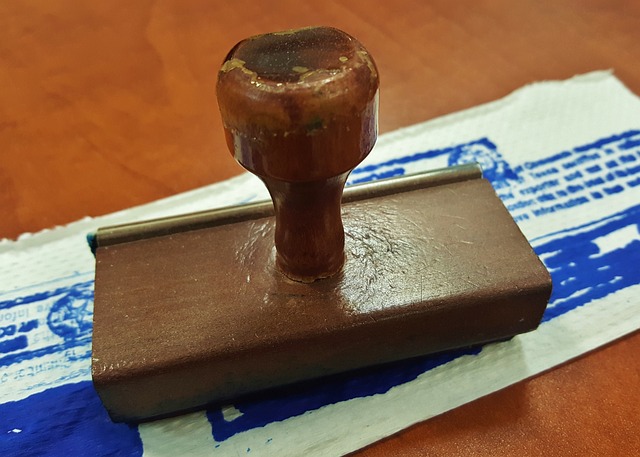Navigating the responsibilities of a notary public involves a high degree of precision and legal acumen. In the event that an error or oversight occurs, notary errors and omissions insurance serves as a critical safeguard, offering financial and legal security to notaries facing claims. This article explores the multifaceted role of this insurance in protecting notary business security and ensuring legal protection for notaries, thus maintaining professional integrity. We will delve into understanding notary liability protection, essential strategies for fraud prevention within notary risk management, and how these measures collectively contribute to a robust defense against unintended mistakes. Understanding the intricacies of notary errors and omissions insurance is paramount for any notary seeking to safeguard their reputation and continue serving with confidence.
- Understanding Notary Liability Protection: A Shield Against Unintended Errors
- Enhancing Notary Business Security with Errors and Omissions Insurance
- The Role of Legal Protection for Notaries in Maintaining Professional Integrity
- Fraud Prevention for Notaries: Strategies and Measures in Risk Management
Understanding Notary Liability Protection: A Shield Against Unintended Errors

Notary liability protection is a critical aspect of a notary’s professional toolkit, offering robust legal protection for notaries against unintended errors that can arise during their official duties. This type of insurance serves as a safeguard, ensuring that notaries are equipped to manage the financial repercussions of claims made against them for negligence or mistakes in their notarial acts. It’s essential for notaries to understand the scope of their policy, which typically includes coverage for both civil demands and defense costs. By securing a comprehensive notary errors and omissions insurance policy, notaries can significantly reduce the risks associated with their daily operations, thereby enhancing their business security.
Moreover, notary risk management is an ongoing process that encompasses more than just securing insurance. It involves diligent record-keeping, adherence to best practices, and continuous education on the latest laws and regulations that govern notarization. Fraud prevention for notaries is a critical component of this risk management strategy. By implementing strict identity verification procedures and remaining vigilant against potential fraudulent activities, notaries can further fortify their professional integrity. This proactive approach to risk management, combined with the right insurance coverage, provides comprehensive protection that safeguards notaries’ reputations and ensures the longevity of their businesses in an environment where legal challenges can arise unexpectedly.
Enhancing Notary Business Security with Errors and Omissions Insurance

Errors and omissions insurance serves as a cornerstone in the robust structure of notary business security. It provides notary liability protection against claims arising from alleged professional negligence or mistakes made during the course of their duties. This coverage ensures that if a notary’s actions lead to financial loss for a client, the insurance can help cover the costs associated with defending against such claims, as well as any damages that may be awarded. The peace of mind afforded by this legal protection for notaries is paramount, allowing them to focus on their professional responsibilities without the added stress of potential lawsuits or out-of-pocket expenses.
Furthermore, having errors and omissions insurance in place is a critical component of fraud prevention for notaries. It protects against unintentional yet costly errors that could otherwise tarnish a notary’s reputation. Notary risk management extends beyond mere compliance with state regulations; it involves a proactive approach to identify potential vulnerabilities within the notarization process. By securing this type of insurance, notaries are not only safeguarding their business from financial repercussions but also reinforcing their commitment to upholding the highest standards of professional excellence and integrity.
The Role of Legal Protection for Notaries in Maintaining Professional Integrity

Notary liability protection is a critical component in maintaining professional integrity within the notarization process. It serves as a safeguard against unintentional errors or oversights that could otherwise lead to significant repercussions for a notary’s reputation and the trust placed in their services. This form of insurance, known as notary errors and omissions insurance, is specifically designed to offer financial and legal support should a claim arise from a signing event. It ensures that notaries can navigate challenges without undue strain on their business finances or personal assets, thereby upholding the highest standards of professional practice.
Furthermore, the role of legal protection for notaries extends beyond mere error correction; it also encompasses robust fraud prevention measures. Notary business security is bolstered by this coverage, which can provide compensation in the event of a fraudulent act, such as identity theft or document forgery, that a notary may unwittingly endorse. Risk management strategies are essential for notaries to mitigate the likelihood of such incidents. By staying abreast of notary bond requirements and adhering to best practices, notaries can significantly reduce their exposure to risk, ensuring their professional services remain secure and their integrity intact. This proactive approach to risk management, combined with comprehensive errors and omissions insurance, positions notaries as reliable professionals who value both the trust of their clients and the integrity of their business operations.
Fraud Prevention for Notaries: Strategies and Measures in Risk Management

Notaries play a critical role in the execution of legal documents, and as such, they must navigate a landscape rife with potential for errors and fraudulent activities. To maintain the integrity of their services and protect against notary liability, it is imperative to implement robust strategies in risk management and fraud prevention for notaries. One of the most effective measures is obtaining notary business security through errors and omissions insurance, which provides legal protection for notaries by covering costs associated with claims alleging negligence or mistakes in their work. This insurance acts as a safeguard, allowing notaries to address unintended oversights without the fear of crippling financial repercussions.
In addition to securing insurance, notaries must engage in proactive risk management practices. This includes conducting thorough background checks on clients, employing secure document handling protocols, and staying abreast of legal updates that could affect their practice. Fraud prevention for notaries involves a combination of technological solutions, such as encryption and digital signatures, and procedural safeguards, like verification of identities and regular audits of notarized documents. By integrating these measures into their operations, notaries can significantly reduce the risk of fraud and enhance the overall security of their business, thereby preserving their reputation and ensuring continued trust from clients.
In conclusion, notary liability protection is a critical component in the robust framework of notary business security. As detailed throughout this article, obtaining notary errors and omissions insurance not only fortifies your professional standing but also demonstrates a commitment to excellence and client care. By understanding the intricacies of legal protection for notaries and implementing effective fraud prevention measures within risk management protocols, you can safeguard your reputation and ensure the longevity and trustworthiness of your notary practice. In an ever-evolving professional landscape, staying informed and prepared is key to maintaining the highest standards in the industry. Therefore, it is advisable for all notaries to consider this comprehensive approach to protection as an essential aspect of their operational strategy.



